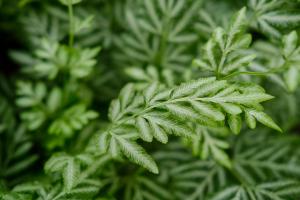Do Water Plants Create Ammonia?
Water plants are a great addition to any aquatic environment. They provide a natural and vibrant aesthetic to fish tanks and ponds while also helping to maintain a healthy ecosystem. One common question that many aquarium owners and pond enthusiasts have is whether or not water plants create ammonia. The short answer is yes, but there is more to this question than meets the eye.
Ammonia in Aquatic Environments
Ammonia is a toxic substance that can be harmful to fish and other aquatic life if present in high concentrations. Most of the ammonia in aquatic environments comes from fish waste and decomposing organic matter, but plants also play a role in ammonia production. Specifically, water plants release ammonia as a byproduct of their natural metabolism.
Why Do Water Plants Create Ammonia?
Water plants, like all living things, require certain nutrients to grow and thrive. One of these nutrients is nitrogen, which is an essential component of plant cells. However, nitrogen in its natural form (i.e., atmospheric nitrogen) is not readily available to plants. Instead, plants must obtain nitrogen from other sources, such as nitrates and ammonia.
Water plants are capable of converting nitrates into ammonia through a process called nitrate reduction. This process not only provides plants with the nitrogen they need to grow, but it also helps to remove excess nitrates from the water, which can be harmful to fish in high concentrations.
Ammonia and the Nitrogen Cycle
While water plants do create ammonia, they also play an important role in the process known as the nitrogen cycle. The nitrogen cycle is the process by which ammonia is converted into less harmful substances that can be utilized by plants and other organisms. Specifically, the nitrogen cycle involves the following stages:
Ammonia is produced by fish waste and decomposing organic matter.
Nitrifying bacteria convert ammonia into nitrite, which is still toxic to fish.
More nitrifying bacteria convert nitrite into nitrate, which is less harmful to fish but can still be dangerous in high concentrations.
Plants (including water plants) take up nitrates as a source of nitrogen for growth.
Denitrifying bacteria convert nitrates back into nitrogen gas, which is released back into the atmosphere.
Conclusion
So, do water plants create ammonia? Yes, they do, but this is not necessarily a bad thing. In fact, water plants play an important role in the nitrogen cycle and can help to maintain a healthy aquatic environment. As with any aspect of aquarium or pond care, it is important to monitor ammonia levels and take steps to correct any issues that arise.

 how many times do yo...
how many times do yo... how many planted tre...
how many planted tre... how many pine trees ...
how many pine trees ... how many pecan trees...
how many pecan trees... how many plants comp...
how many plants comp... how many plants can ...
how many plants can ... how many plants and ...
how many plants and ... how many pepper plan...
how many pepper plan...
































